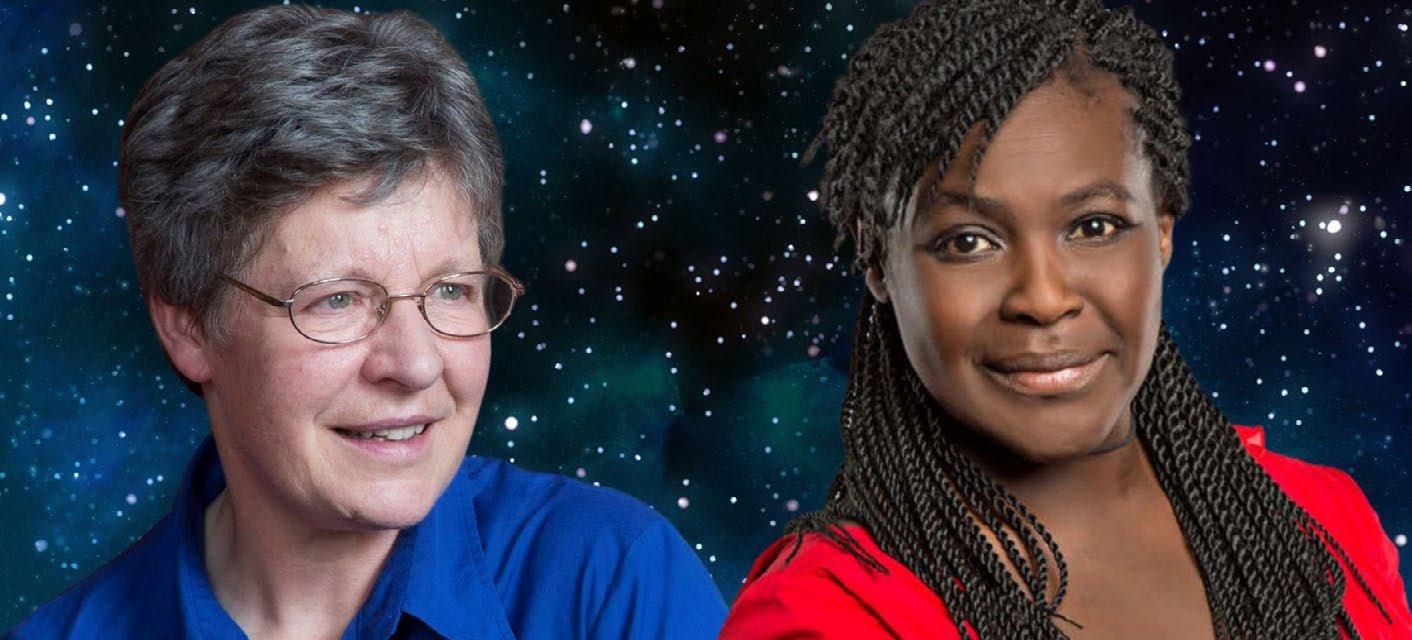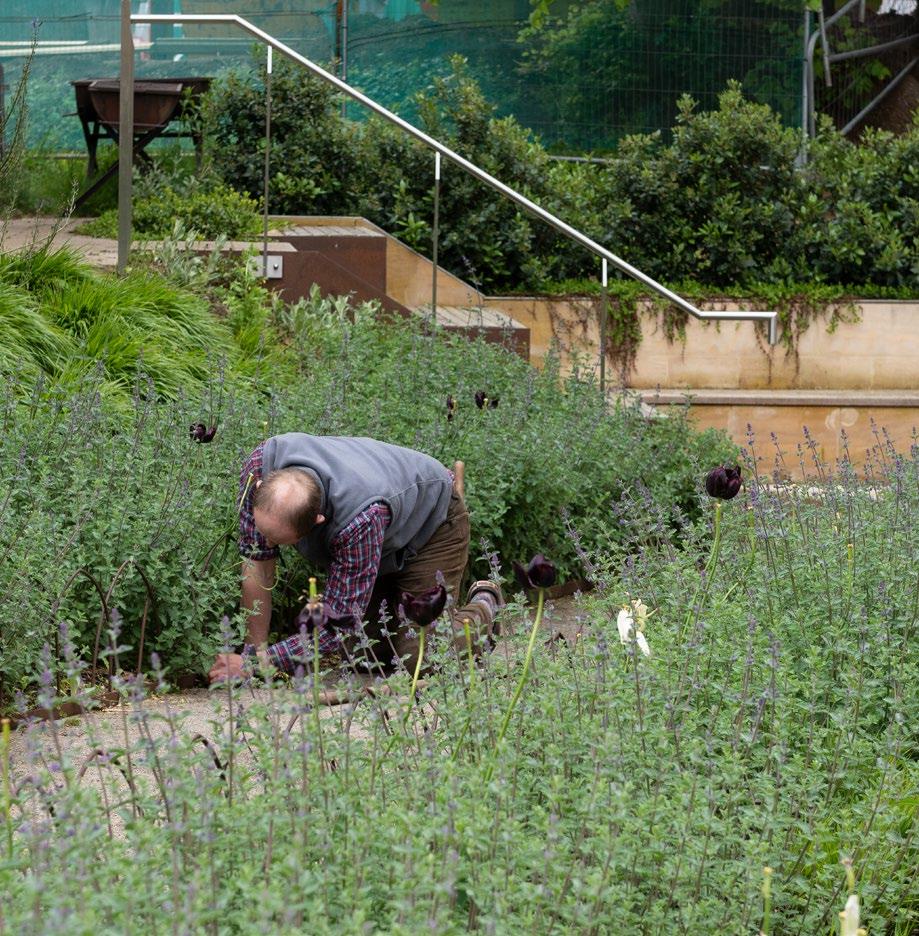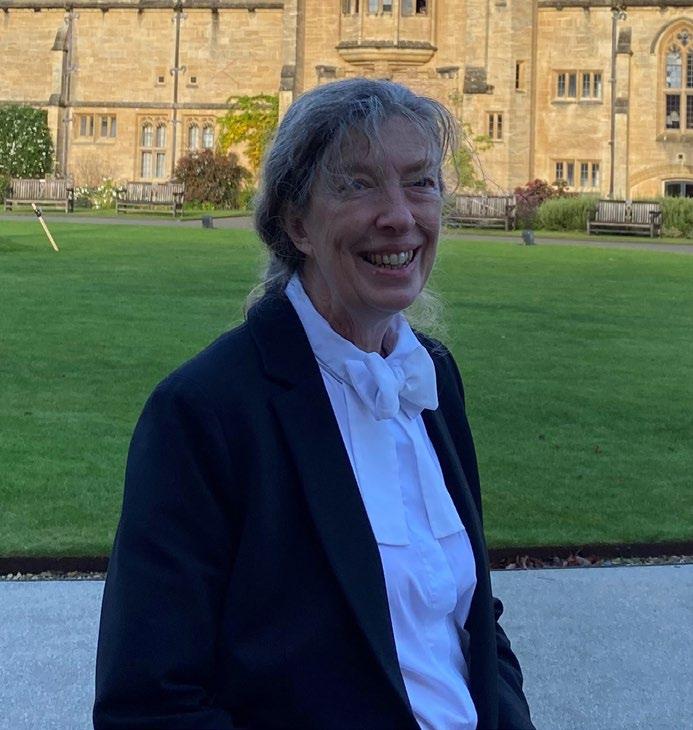
5 minute read
News in brief
Reach for the stars
On the UN International Day of Women and Girls in Science (11 February 2021), College announced the launch of a new annual lecture, named in honour of trailblazing astrophysicist and Mansfield Fellow, Professor Dame Jocelyn Bell Burnell.
Advertisement
Jocelyn was just 24 when she discovered a new type of star known as a pulsar, while completing her PhD at Cambridge. The significance of this discovery was recognised by the award of the 1974 Nobel Prize in Physics – but the award was given to her supervisors, Antony Hewish and Sir Martin Ryle, rather than Jocelyn. Since then, Jocelyn has received many honours, including, in 2018, a Breakthrough Prize for Physics by the Fundamental Physics Prize Foundation. She pledged the £2.3 million prize money to help women, minority, and refugee students to follow in her footsteps and become Physics researchers.
More recently, in January 2021, Jocelyn joined Albert Einstein, Edwin Hubble, and Stephen Hawking by becoming a recipient of the prestigious Royal Astronomical Society Gold Medal for Astronomy, and in August was awarded the world’s oldest scientific prize, the Royal Society’s Copley Medal. She once again donated her prize money to support students from groups under-represented in Physics. The new Jocelyn Bell Burnell Lecture will be held each November to mark the anniversary of Jocelyn’s discovery of pulsars on 28 November 1967 and aims to inspire the study of science at the highest level in all with the curiosity and commitment to pursue it. The inaugural lecture will be given on Friday 26 November 2021, by space scientist Dr Maggie Aderin-Pocock, who last year was made an Honorary Fellow of Mansfield.
We cannot walk alone
In Trinity term, as part of Mansfield’s observance of Refugee Week (14-20 June 2021) – an annual UK-wide festival celebrating the contributions, creativity and resilience of refugees and people seeking sanctuary – Mansfield was proud to host the inaugural Oxford’s Colleges of Sanctuary event: ‘Voices for Sanctuary: We Cannot Walk Alone’.
Refugee Week has been particularly important to us this year, as, following a joint application with Somerville College, Mansfield achieved ‘University College of Sanctuary’ status, under the City of Sanctuary UK scheme. This recognised our commitment to nurturing a culture of inclusivity and support for those seeking sanctuary, including refugees and asylum seekers.
The Colleges of Sanctuary event was hosted in partnership with Somerville, and we were delighted to welcome the Reverend Inderjit Bhogal, founder and President of City of Sanctuary UK, and Afraa Hashem, of campaigning group Action for Sama, as the inaugural guest speakers.

From little acorns

Mansfield takes its environmental responsibilities seriously, and with this in mind, the College has recently agreed an ambitious set of targets: to become carbon neutral and achieve a net gain in biodiversity by 2030.
For many years Mansfield has pursued eco-friendly initiatives – including the introduction of energy-saving heating and electrical appliances, water-saving toilets, biodegradable catering supplies, meat-free Mondays, and garden renovations – but now we seek to incorporate our environmental targets into College decision-making processes. The College Strategy approved by Governing Body urges us ‘to run our College in an environmentally and financially sustainable and ethical way, and for our operations and investments to be undertaken with due consideration of and respect for good environmental and human rights standards.’
At the request of Mansfield’s JCR and MCR, we have also established a dedicated Environmental Sustainability Working Group (ESWG), to develop and implement a comprehensive strategy for this area. The ESWG meets regularly to collaborate, drawing on the wealth of expertise and experience within the College and wider University, and has a balanced membership of students, academics, and support staff.
On 17 March 2021, Mansfield’s Senior Tutor, Lucinda Rumsey, was installed as the University’s Senior Proctor.
This year’s ceremony was the first in the University’s history to have taken place online, rather than in its traditional home of the Sheldonian Theatre. It was also the first time that the book and keys (et claves), which are the symbols of the Proctor’s authority, have been accepted virtually.
Oxford’s Proctors and Assessor are drawn annually from college academics and fulfil a key role by ensuring that the University operates in accordance with its statutes. These elected academics oversee student discipline, have formal responsibility for University exams, and act as ombudspeople for the institution. They also usually perform ceremonial duties, such as leading degree ceremonies, in a role that has existed for over 800 years.
Lucinda has invited Dr Machilu Zimba and Professor Proochista Ariana to serve as Pro-Proctors. Dr Zimba is Policy Advisor for race equality, religion and belief, in the University’s Equality and Diversity Unit, and Professor Ariana is Director of the MSc in International Health & Tropical Medicine at the Nuffield Department of Medicine. Of the Proctorial team of seven (Proctors, Pro-Proctors and Assessor), six are women, four are people of colour, and their disciplines include Social Sciences, Medical Sciences and Humanities – a diversity of representation of which the team is proud.
During Lucinda’s absence, Dr Helen Lacey, Supernumerary Fellow in Late Medieval History and Tutor for Visiting Students, has stepped into the role of Senior Tutor at Mansfield. She will continue in this post until the end of the 2022 academic year.

‘When this magazine is published, I will have served nearly half my time as Senior Proctor. It has not been a typical year so far: lockdown and social distancing mean I attend online meetings from my sofa, and dinners and degree ceremonies have been suspended. As well as assessing student complaints and appeals we have oversight of more than 80 University committees, ranging from Council to being Curator of Oxford’s Museums and Gardens. I have just been told that a graveyard has been discovered under University Parks, so among many other intriguing insights into the workings of Oxford – I know where the bodies are buried!’









